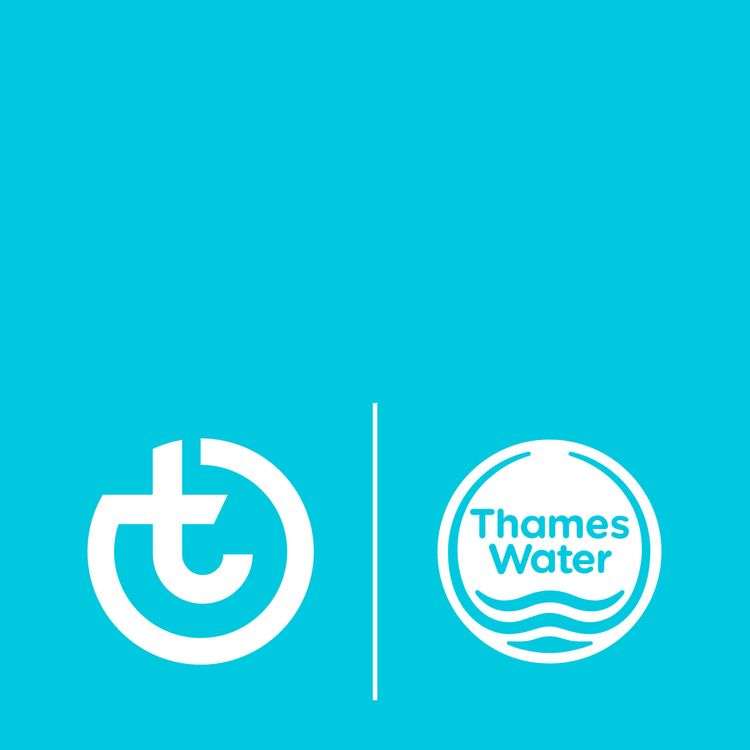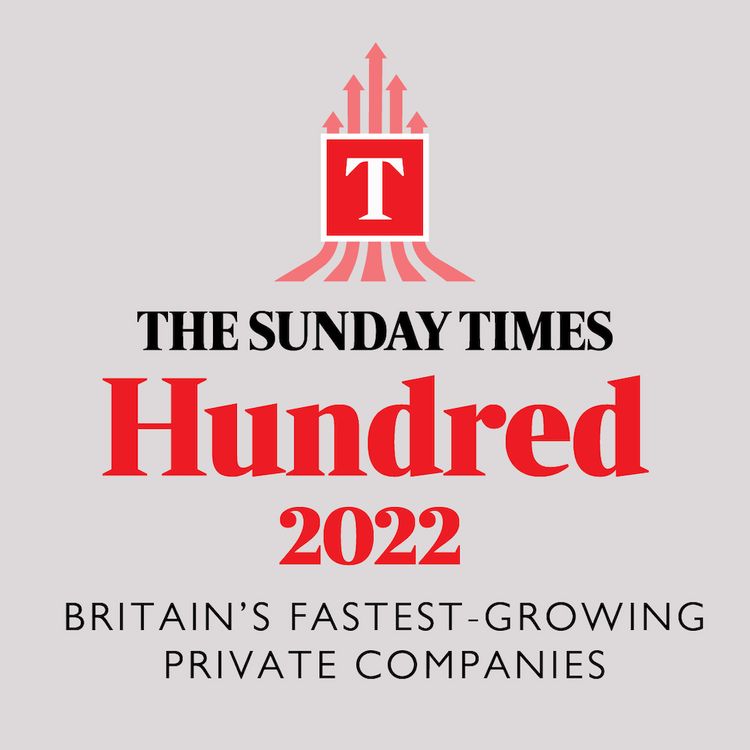Empowering Thames Water to own its digital transformation
Helping Thames Water decouple from complex and costly legacy technology contracts, migrate to modern cloud-based platforms, and build a team of skilled system engineers.

We recently sat down for an enlightening conversation with Billy D’Arcy, CEO at BAI Communications UK (BAI). Ahead of his keynote at our CIO roundtable event on 30th June, we talked to Billy to get a behind-the-scenes sneak peek at his ongoing ground-breaking digital connectivity project with Transport for London (TfL).
Billy’s experience, ongoing work and leadership style are shining examples for fellow leaders across industries who are heading up large-scale technology projects.
If you want to know why Billy sees collaboration as the key to innovation and leadership, what it takes to plan, deliver, and stay on your toes during a mammoth 20-year project and much more, read the full story here.
BAI is a global leader in shared communications infrastructure. Headquartered in Australia, it has designed, built, and brought into operation complex and high-performance communications systems to cities including Sydney, Hong Kong, New York and Toronto.
Billy took the helm at BAI in 2017. He was brought in to set up BAI’s European business, starting out in London to embark on one of the city’s most life-enhancing projects in partnership with TfL. The project is the biggest of its kind to date, and will bring instant and omnipresent digital connectivity to the entire London underground system, future-proofing one of the world’s most socially and commercially thriving cities. The up to five million passengers who travel on TfL’s services every day will experience safer, more informed, and more enjoyable journeys thanks to Billy’s monumental work.
During our chat, we found out how Billy is leading his teams through this unprecedented project with the help of a people-first mentality, unrivalled customer centricity, and the mentality of a start-up operating inside a multinational corporation.
To let you envisage the scale of Billy’s ongoing project: it encompasses 402km of tunnels, which by the end of the massive 20-year project will offer high-spec connectivity to its customers across a network that at peak times has over 540 trains whizzing around it. And it’s more than just the immense scope – the nature of the work means it’s also extremely complex. It involves highly qualified manual work being carried out in dangerous conditions stemming from antiquated infrastructure, dark tunnels, and tight windows of time allocated for performing the work.
As Billy notes, “It’s not for the faint-hearted. If it were easy, everyone would be doing it!”
“What challenges come with such a mammoth project, and how are you tackling them?” we ask Billy. One of the biggest, he reveals, is that the project simply cannot fail — under any circumstance. The TfL project isn’t only supporting the people of London to stay connected wherever they go. It’s also supporting critical operations run by the city’s police force, firefighting, and ambulance services, as well as the Home Office.
To put it simply, the stakes are extremely high.
Billy notes that this meant the supplier who got awarded this huge contract would inevitably have to be one with deep and proven experience in the field — like BAI. But Billy was adamant that this deep-seatedness wouldn’t mean a compromise on innovation.
Many view the “move fast and break things” mantra as the holy grail of innovation. But not every industry or project has the luxury of piecing the broken back together without consequence for its customer and end users. Billy’s project falls into this category. So he’s moving fast and keeping things whole, championing a method of open collaboration to stay on the edge of innovation as he leads TfL through its biggest project of a lifetime.
At the start of the project, he set up a joint innovation board between senior strategic leaders at TfL and BAI, as well as academics, experts, and representatives from the wider connectivity ecosystem. This group works closely together at BAI’s Paddington headquarters, connecting to ratify the ideas that come in from the board and allocate them to the operational teams and functions within the business.
This collaborative approach is unique in Billy’s industry – most suppliers will insist on owning every aspect of the project from ideation to strategy to execution. The approach is also vital to Billy and BAI’s success.
The close and constant collaboration means that both sides of the partnership can make real-time joint decisions on whether ideas can be carried out with the resources to hand, or whether extra partners need to be brought on-side. It means that both BAI and TfL can stay one step ahead of the next requirement, working proactively, and never failing to deliver on or before time.
Apart from its people-centricity, Billy’s leadership style also hinges on a way of thinking beyond what’s there now, and how to achieve that. Prior to joining BAI, Billy had an eight-year stint with Telefonica O2 UK, running their corporate market from a sales point of view. During that time, he spotted a huge opportunity to expand the business into the public sector, and made a business case for creating a dedicated public sector arm within the organisation.
In just two and half years, Billy grew the firm’s market share from 11% to an impressive 40%.
How did you do it? we ask. “We offered the public sector something that no other provider was offering: flexibility and dedicated accreditations to show we were a trusted and secure partner for government bodies to work with.”
Billy could move quickly and by-pass the ways of typical large corporations, he recounts, because he set up his division as an entirely separate entity within Telefonica O2. He moved with the pace and agility of a start-up, helping Telefonica O2 not only catch up with, but leapfrog and leave its competitors far behind under Billy’s leadership.
He has kept this mindset ever since, continuing to champion innovation on every project he leads.
Billy also has an obsessive customer focus that marks him out amongst his industry peers. We learn that this isn’t just the key to happy customers, but also to planning ahead and positioning yourself perpetually at the ever-advancing edge of what it means to be the best in the industry.
“Listening intently to what your customers and their customers are saying gives you front-line insight that’s critical to letting you match the pace of change. And you have to keep up — otherwise you’ll have a business going backwards.” Billy applies this to every decision made on the TfL project, constantly keeping an ear to the ground to plan for what his future customers’ and end-users’ requirements could be.
Working on a colossal 20-year contract with TfL, this constant insight harvesting is pivotal for planning the next steps. Today’s pace of change can bring seismic disruption to how we live, work or communicate in the span of just a few years. Now imagine what could change between now and the year 2042…
No one, not even Billy, can predict the future. But constantly listening to customers and championing mechanisms for continuously and effectively applying that feedback will put you as close as humanly possible.
Billy cares deeply about what BAI’s customers think, and that care also extends internally to the people he leads at BAI.
“We make sure that everyone who joins feel they have the right to be here. I don’t believe you can have a high-performing team without very strong engagement.”
As any leader will know, it takes more than words to build a great culture at a workplace that perpetuates the kind of engagement you need to lead the kind of project that Billy and his teams are undertaking.
A subscriber to the saying that “culture is what happens when people aren’t looking”, Billy observes that the people he works with can be described with three Hs: humble, hardworking, and hungry. “When you have people on your team with those attributes, you can actually achieve anything — you’re only limited to your imagination”.
Hiring for those attributes isn’t enough, as Billy well knows. You have to drive, reward, and lead by example to tap into that incredible potential.
Billy works ceaselessly to listen to his teams, connect with them, and trust them to be experts at their jobs. “I always look for people who can do things better than you can. It lifts the quality of the whole organisation.”, Billy reflects.
The results speak for themselves: Billy’s work to foster a great culture in his teams has led to an industry record low employee attrition rate of just 2%.
Something he learned during the Covid-19 pandemic is that you don’t have to be physically present to have engaged people. If anything, the pandemic and subsequent need for remote working were an excuse to get closer to people, not further. Billy notes that this was critical for keeping people engaged and connected during what was a disruptive time for the business, but more importantly for the people who make that business what it is.
Community and common purpose, Billy says, is also a big part of what’s making BAI’s work with Sunderland City Council such a huge success. The project, also a 20-year agreement, is turning Sunderland into a frontrunner on the Smart City scene — a growing movement of digitalising and connecting city infrastructure and citizens to create safer communities, healthier environments, and enable data-driven decision making.
Here, too, Billy has set up an active joint innovation board that generates ideas, processes them, and monitors feedback and progress to constantly stay on the radar of change. But one of the biggest driving factors, Billy explains, is the unity of the communities that’s shaping the strategy and bringing the city together on this project.
In typical fashion, financial capital in the UK tends to gravitate towards the south. Faced with a tighter budget typical of the region, Sunderland would have faced a massive challenge if the council didn’t command the clout through cohesion and unity that’s helping them advance at unforeseen speeds during this project.
A city of under 400,000 people, blazing the trail for metropolitan big shots like London and Hong Kong? “If it works in Sunderland, this model can work anywhere in the UK!” Billy says.
Asked how he balances risk and innovation in his leadership, Billy points out that “risk has a very negative connotation. I prefer to use the word ‘opportunity’. My work ethos and [the TfL] project are all about seizing the opportunities at hand to make a tangible difference to people’s lives. We’re very proud of the fact that over the next decades, this project is going to make such a meaningful difference to people’s lives. It’s one of the most compelling projects I’ve ever worked on.”
A London-based company ourselves, we’re looking forward to enjoying the fruits of Billy’s innovation on our commutes to the office in the coming years!
If you want to find out more about how tech-driven projects are helping improve citizens’ lives through common services, head to our customer story on how we helped radically transform the customer experience in Thames Water’s contact centre.

Helping Thames Water decouple from complex and costly legacy technology contracts, migrate to modern cloud-based platforms, and build a team of skilled system engineers.

Tecknuovo are ranked 78th on the Sunday Times 2022 100 Fastest-Growing Companies list. This list recognises the fastest-growing private companies in the United Kingdom. Listed companies must demonstrate consistent growth, create jobs, and, sustain profitability.

Several Tecknuovo members took part in the exciting Thames Water Raft Race last Thursday, September 23rd, to benefit WaterAid. The thrilling event challenges teams of six to build a raft and race down the River Thames.
Get the inside scoop — delivered straight to your inbox.